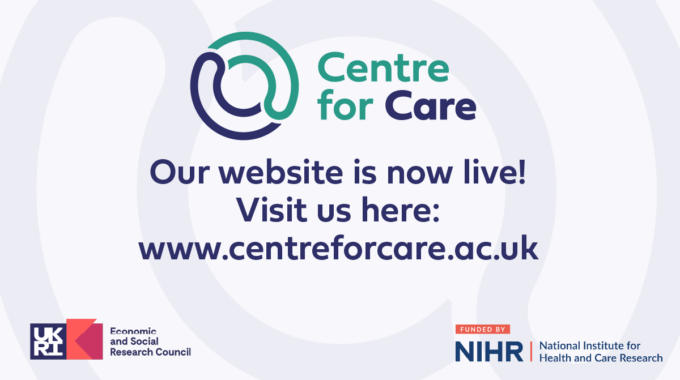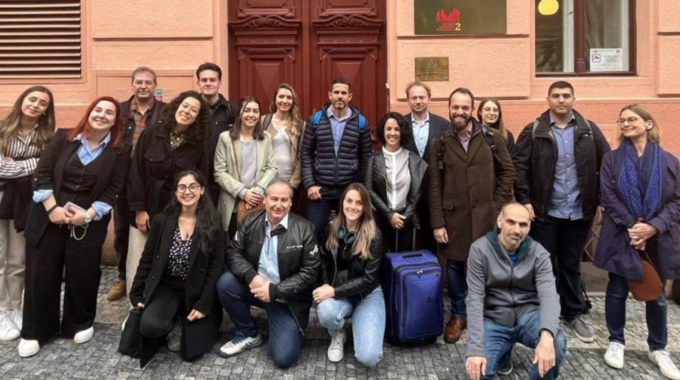
Launch of the ESRC Centre for Care website
The Centre for Care is a collaboration between the universities of Sheffield, Birmingham, Kent and Oxford, the London School of Hygiene & Tropical Medicine, the Office for National Statistics, Carers UK, the National Children’s Bureau and the Social Care Institute for Excellence. Working with care sector partners and leading international teams, it addresses the urgent need for new, accessible evidence on care. Led by Centre Director Sue Yeandle and Deputy Director Matt Bennett, its research will make a positive difference in how care is experienced and provided in the UK and internationally.
Arrangements for care, and people who need or provide care, are under unprecedented pressure. Quality, cost, unmet need and the situation of carers and care workers are central concerns. Care interacts with other systems in the NHS, jobs market and in policy on migration, welfare and housing.
The cultures, values and public policies that determine eligibility for support and funding rules are also crucial, and ‘shocks’ like Covid-19 have profound and multiple effects. Together, these factors have led to fragmented care provision and unfair outcomes, and the need for reform is now widely accepted. The Centre for Care provides new evidence and thinking for policymakers, care sector organisations and for people who need or provide care.
Its objectives are to:
- Work with people who need care, carers, care workers and others to produce studies that improve understanding of care and promote wellbeing;
- Publish robust findings on care systems, on paid and unpaid care, and on diversity, inequalities and sustainability in care;
- Exploit existing data and develop new studies, producing findings that policymakers and other researchers can use;
- Work with PhD students and emerging scholars, establishing a new generation of care specialists;
- Stimulate and inform public discussion of care and translate research into practice; and
- Collaborate with other care research teams, within and beyond the UK.
The Centre for Care will seek to generate new knowledge on three major topics:
‘Care trajectories and constraints: requiring, receiving and giving care’ explores experiences of care at different life stages and as people transition between different parts of the care system. It also studies how giving or receiving care is affected when families are geographically dispersed.
‘Inequalities in care: consequences, planning and place’ uses latest statistical and data linkage techniques to learn how socio-economic, health and other inequalities shape experience of care, and the consequences of these for groups and individuals in different places and over time.
‘Care workforce change: organisation, delivery and development’ focuses on care worker recruitment and conditions; regulation and organisation of care work, including the introduction of new technologies; and efforts to improve job and service quality in care.
Cross-cutting these studies, the Centre will also examine ‘Care as a complex, adaptive ecosystem’, ‘Digital care’ and ‘Care data infrastructure’, supporting the integration of all our research. This helps develop new thinking on care inequalities, how care ecosystems operate and change, and the drivers and implications of digitalisation and other developments. It also enables us to exploit the UK’s finest statistical datasets to produce compelling new insights on care and caring.
For more information, please visit: https://centreforcare.ac.uk/





